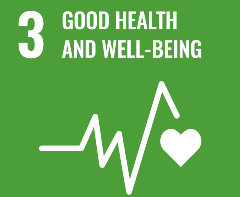.jpg)
Suicide prevention during a pandemic
In this blog Nicola Richards, Research Assistant at the National Confidential Inquiry into Suicide and Safety in Mental Health (NCISH), discusses the research programme’s contribution to suicide prevention during COVID-19.
More than 6,000 deaths by suicide are registered in the UK each year. Every one of these deaths is a tragedy that touches many lives.
The NCISH is an internationally unique project that collects in-depth information on each of these suicides and our recommendations have improved patient safety in mental health settings, reduced patient suicide rates and are cited in national policies and clinical guidance.
As part of NHS England’s and NHS Improvement’s suicide prevention programme, we are working with experts in Quality Improvement from the National Collaborating Centre for Mental Health (NCCMH) to support local areas to strengthen their suicide prevention plans.
The COVID-19 pandemic and associated lockdown measures are likely to have significantly impacted mental health, particularly among people with existing and severe mental illness under the care of mental health services. In response to the COVID-19 pandemic, we have expanded this support role to include responding to local area pandemic-related concerns, and to understanding the implications of COVID-19 on people’s mental health and suicide risk.
Suicide rates may rise, though this is not inevitable.
What do we already know about the impact of COVID-19 on suicide prevention?
Factors related to COVID-19 present specific priorities for suicide prevention, including physical health problems, bereavement, and financial insecurities. It’s important to acknowledge that the pandemic and associated social distancing measures are also likely to exacerbate known suicide risk factors and disproportionately affect those most vulnerable to suicide:
- mental health patients have been more affected by lockdown measures, reporting a worsening of their mental health since the introduction of shielding advice, and are often self-isolated experiencing loneliness;
- middle-aged men more often impacted by financial problems;
- younger people who are more likely to self-harm and now face uncertain future prospects.
It is essential that we continue to address key areas for action outlined in the National Suicide Prevention Strategy:
- reducing suicide risk in high risk groups;
- tailoring approaches to enhance mental health in specific groups;
- reducing access to means of suicide;
- providing bereavement support;
- working with the media to report on suicide sensitively;
- supporting research, data collection and monitoring;
- reducing self-harm rates.
Our work at the NCISH has primarily focused on improving safety in mental health services. These services can assess their own suicide prevention approach against our 10 key elements of quality and safety, which remain priorities during this pandemic.
What more can we do to support suicide prevention during COVID-19?
Since 2018, the NCISH has worked with the NCCMH to support local areas to establish suicide prevention quality improvement plans.
Through our networks - we are now offering COVID-specific suicide prevention support across all areas of England, Wales, Scotland and Northern Ireland, through:
- interactive webinars hosted by the NCCMH, featuring guest panellists, to share learning about self-harm and suicide during the pandemic;
- a NCISH resources website where we have collated robust evidence and guidelines on COVID-19 and suicide prevention, grouped in themes reflecting the concerns raised in our networks (eg changes in modes of access for help, bereavement support, and support for students and older people);
- regular contact with local areas providing quality-assured research into COVID-19 and mental health and suicide prevention, and responding to any concerns.
The recovery strategy
Our support is ongoing; with future interactive webinars planned to continue the dissemination of quality-assured publications, highlighting key messages and findings that can be implemented in practice. We continue to update our webpage with emerging evidence on suicide prevention during COVID-19, as an evolving publicly available resource.
In addition to our support offer for local areas, we have recently re-established core suicide data collection in mental health services in England following a pause from March 2020. We have adapted this data collection to be completed remotely by clinicians, to collect a minimal (10-item) dataset about people who have died by probable suicide under the care of services since January 2020. A significant change to this data collection is the real-time element, which will allow us to report on the number and rate of probable suicides by mental health patients over time, and at differing phases of the pandemic. We are collecting COVID-related factors that may have contributed to the deaths. Our conclusions will identify areas for potential intervention, and will be reported to Public Health England and NHS England/Improvement.
Previous research has helped us to understand what might prevent suicide and where our focus should be – it is important that we don’t forget these established priorities. However, with inequalities compounded by the pandemic, and services adapting to distancing guidelines, it is vital that clinicians and researchers collaborate to define and respond to emerging areas for concern.
We will continue to support local areas to embed recommendations from research into their new ways of working, and work to provide timely data that can inform effective suicide prevention in a changed and changing world.

